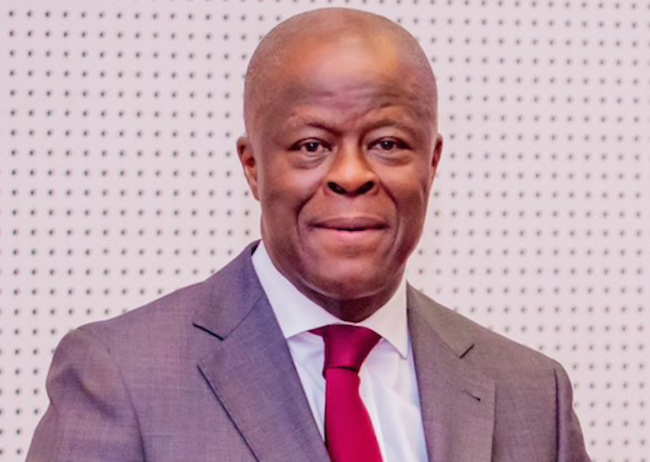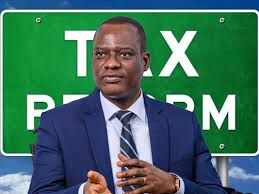The Minister of Finance and Coordinating Minister of the Economy, Wale Edun, has disclosed that Nigeria currently spends a staggering $600 million on fuel importation each month.

During an interview on AIT’s Moneyline program, which was shared on the channel’s YouTube platform on Wednesday, Edun highlighted the enormous cost of fuel imports, noting that it’s not just Nigerians who benefit. He explained that neighboring countries, including those as far as Central Africa, are also benefiting from Nigeria’s fuel imports.
Edun elaborated that this heavy import bill was a key reason President Bola Tinubu decided to remove the fuel subsidy. The country has struggled to determine the exact amount of fuel consumed domestically, and this ambiguity made the subsidy removal necessary.
A report from the National Bureau of Statistics indicates that Nigeria’s petrol imports were reduced to an average of one billion liters per month following the removal of the fuel subsidy on May 29 last year.
Speaking on the subsidy removal, Edun said, “The fuel subsidy was removed on May 29, 2023, by Mr. President, and at that time, the poorest 40 percent of the population was only receiving four percent of the subsidy’s value, meaning they were barely benefiting at all. So, in reality, the benefits were going to just a few.”
Edun further emphasized the uncertainty surrounding Nigeria’s fuel consumption, stating, “Nobody knows the exact consumption of petroleum in Nigeria. We know we spend $600 million monthly to import fuel, but the issue is that neighboring countries are benefiting as well.
“We’re not just buying fuel for Nigeria; we’re also buying for countries to the east, nearly as far as Central Africa, to the north, and to the west. We must ask ourselves as Nigerians, how long do we want to continue this? This is a critical issue when it comes to petroleum pricing.”
He stressed the need for the nation to take decisive action to address this challenge, as it hampers economic growth.
Edun emphasized that the government remains deeply concerned about the welfare of the people, particularly the most vulnerable. One of the government’s main priorities is ensuring that food remains available and affordable for all Nigerians.
During the interview, Edun also provided clarification on the N570 billion fund disbursement to state governments, explaining that it was carried out in December of the previous year. “This actually refers to a reimbursement they received from December last year onwards, under the COVID financing protocol. The important thing is that the states have received more money. Mr. President has directed that this money should be used to boost food production within the states,” he said.
Addressing concerns about the government’s recent decision to raise the maximum borrowing limit through Ways and Means from five to ten percent, Edun clarified that this does not mean the Federal Government plans to rely heavily on the Central Bank of Nigeria for financing.
He explained, “We have not approached the central bank to ask for loans to pay government debts or salaries. That’s what Ways and Means would involve. Instead, we’ve utilized market instruments to manage our debt, which is crucial for maintaining a strong economy.
“The limit was raised to ten percent, but that doesn’t mean it will necessarily be used. It’s a fail-safe measure, providing extra flexibility so that if a payment needs to be made and there is a timing gap between incoming revenue and expenses, we can draw on it briefly.”
Edun characterized the approval by the National Assembly as a safeguard, saying, “Sometimes, this additional flexibility is necessary to manage the timing of payments and revenue collection.”
The minister also reiterated that the welfare of Nigerians remains a top priority for the current administration, with a specific focus on ensuring the availability and affordability of food.
“There is a concerted effort to ensure that locally-grown food is readily available. In the short term, apart from distributing reserves, we have opened a window for importation because Mr. President is committed to lowering food prices now and ensuring availability,” Edun assured.
He emphasized that this measure would not undermine local farmers, as importation would only be allowed after all local supplies have been utilized. “One of the conditions for this importation is that all available local stock, whether in markets or with millers, has been exhausted. Auditors will verify this,” Edun explained.
These interventions, according to Edun, are aimed at reducing inflation, stabilizing exchange rates, and lowering interest rates to create a favorable environment for investment and job creation.
Read also:
- Asake Joins Forces with Travis Scott on New Single ‘Active’
- A Mother’s Blessing: “I Rejected Many Women Before I Chose Her” – Groom’s Mother Shares Heartfelt Prayer at Wedding
- BBNaija: “She Isn’t TV Material” – Viewer Criticizes Big Brother for Including Victoria on the Show
- APC Never Came To Solve People’s Problems – Charly Boy
- The Struggles Dangote Refinery May Face – Insights from Obasanjo
- Ayra Starr Sparks Mixed Reactions After Being Spotted with Rihanna at Barbados’ Crop Over Festival
- Nigerian Lady Brings Gwo Gwo Ngwo Challenge to the Church
- BBNaija: Wanni and Shaun Clash Over Noodles
- Fuel Supply Halts Amid Hunger Protests, Leading to Fuel Scarcity Across Nigeria
- Mixed Reactions as Blord Visits Sabinus at His Lavish Residence
- Timini Egbuson and Bimbo Ademoye Spark Dating Rumors with Romantic Photos
- Bobrisky’s Caution: “Don’t Spray Money or You’ll End Up as a Kirikiri Landlord”
- “I’ll Fly With You Forever” – Singer Portable Honors Girlfriend Queen Dami on Her Birthday
- Tinubu’s Address Fails to Address Protesters’ Demands – Bauchi #EndBadGovernanceInNigeria Leaders Respond
- Throwback: The Moment Erica Was Disqualified from BBNaija
- Herbalists in Benin Join Nationwide Protest Against Government: Video Goes Viral
- EndBadGovernanceInNigeria: PANDEF Urges Protesters to End Demonstrations, Reassures that Their Voices Have Been Heard



